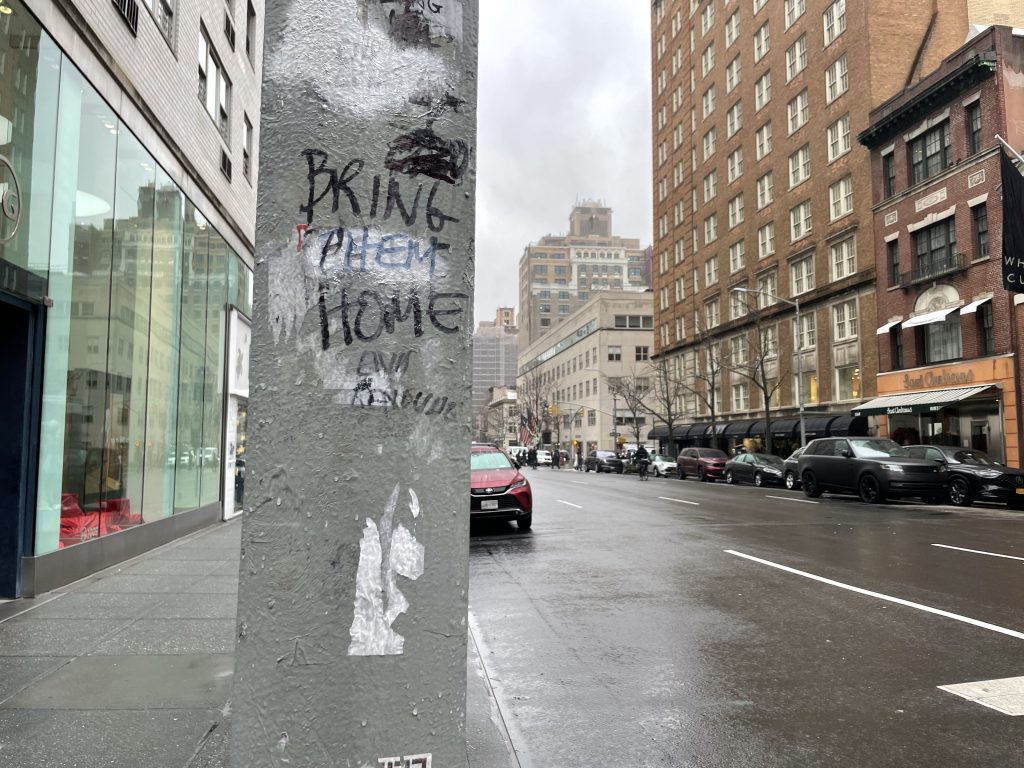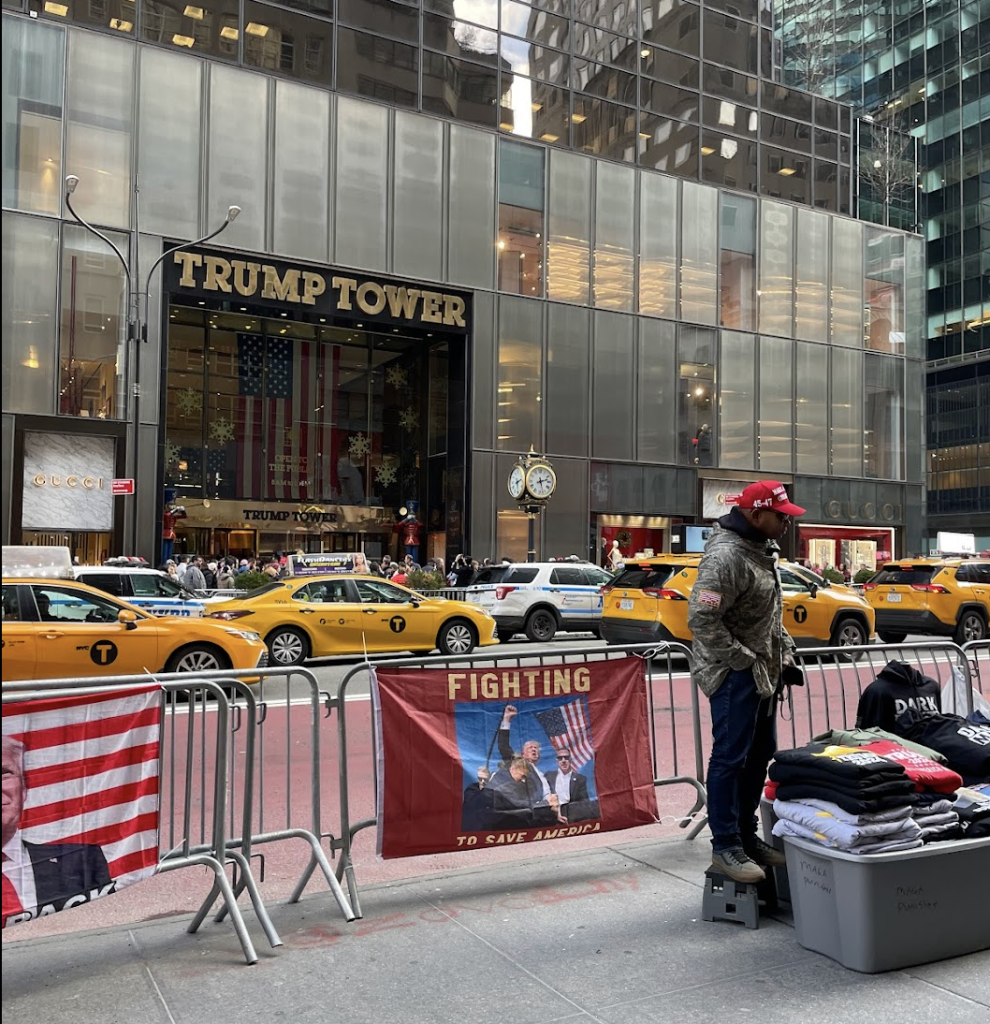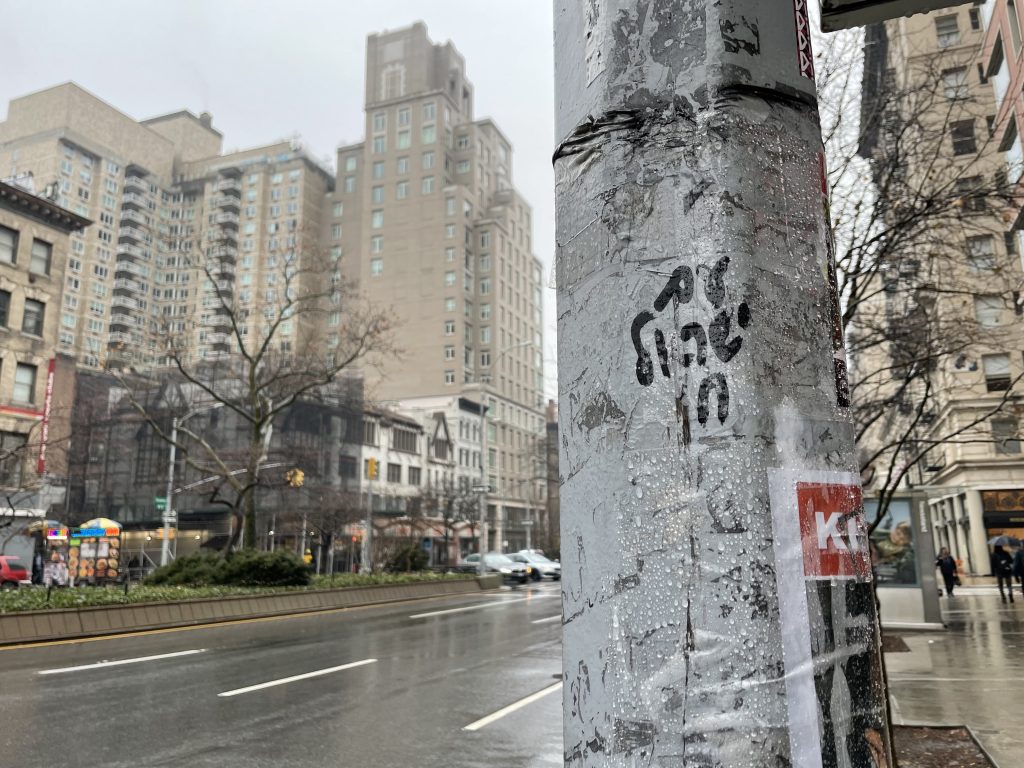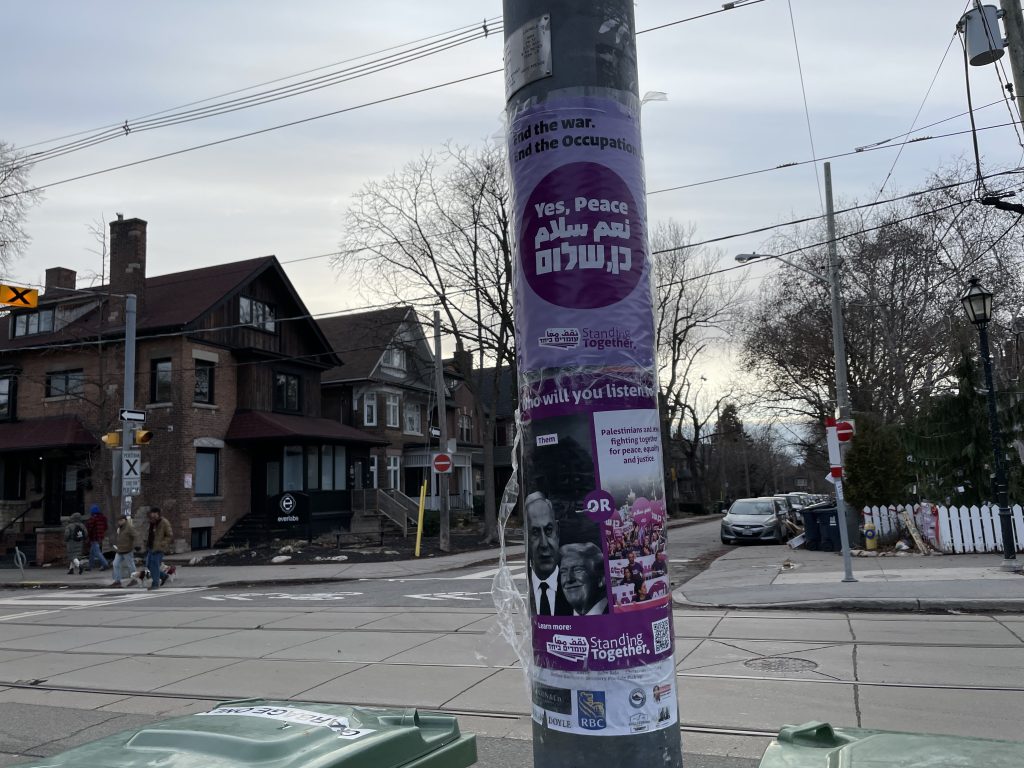It’s a commonplace experience of a Diaspora Jew visiting Israel to realize that suddenly, this thing that made you different is actually the least remarkable thing about you.
The character Alexander Portnoy speaks to this in Philip Roth’s novel Portnoy’s Complaint—but I’ve also just lived it when visiting Tel Aviv or Rehovot or wherever. Whether you experience it as being Othered in a bad way or as a point of pride and what makes you special, you get to Israel and lo and behold, no one is surprised that your family doesn’t celebrate Christmas or whatever. Streets are named after Jewish figures, businesses are closed on Jewish holidays, Jewishness is assumed, so distinctiveness requires other sources. Being Jewish isn’t associated with being this way or that—not with being neurotic or good with money—because Jews are everywhere you look. The bimbos and himbos are Jewish, too.
So it took me by surprise, visiting my hometown of New York City over the holiday break, to feel a bit, well, Israel-visit-ish while there. It’s not that everyone is Jewish (nor, for that matter, is everybody Jewish in Israel), but rather that there’s just some crucial difference in population and culture such that it is not a whole thing to be Jewish in post-Oct. 7 New York, not in the way it is in Toronto. Goodness knows that relative to plenty of places, Toronto’s got Jews. But it is, at most, a city with some Jewish areas. We’re Canadian, sure, but one of the city’s many Others.

The streets of Manhattan are not lined with signage admonishing passersby to reflect on Israel’s misdeeds. You can walk for blocks or even days on end and not see a keffiyeh, not because the United States bans free expression but because the interest just isn’t there. The little that remained of post-Oct. 7 signage was more in the hostage-freeing realm than the other sort.
But there isn’t a tremendous amount of pro-Israel this-and-that, either. (I saw maybe one baseball cap expressing support for Israel?) It’s more like, look at all the shiny things you can buy in America, and particularly in Manhattan, so have at it! Shiny things and, uh, MAGA-wear.

But there’s an underlying Jewishness that’s just so much in the air you wouldn’t notice it if it’s part of your everyday life. There are the old standbys (food shops like Zabar’s, etc.) but also newcomers. Breads Bakery is not that new, but it’s newly ubiquitous, and unambiguously, unapologetically Jewish, from the ‘Happy Challahdays’ signage to the sufganiyot labeled as such. In corporate lobbies and whatnot, no Christmas tree lacks an accompanying menorah. This is not because ‘woke’ or whatever, it’s not a war on Christmas, it’s what the population demands. I heard no shortage of Hebrew.
This is not about better or worse; I am describing the world as it is. Not to suggest anyone up and move (not a trivial thing, even for dual citizens) in either direction. And the thing I experience when I walk out the door in Toronto, where the fact that I’m Jewish is this whole thing, one that is interpreted by some as a prompt for theses on geo-politics that I simply don’t have, is not one in New York, where Jewish is among many unremarkable ways to be. So, Phoebe, you’re Jewish, what’s that about? In New York, no one thinks to start that conversation. Fine not no one, it depends the environment, but it wouldn’t be nearly as regular an occurrence.
Whereas a man in Zabar’s told me that he went to school with the store’s founder, what would have been about 70 years ago. Why did he tell me this? Because it’s what you do while you wait for lox, you tell the person standing next to you your life story. Torontonians would never. We’re too busy not talking to people to whom we haven’t been formally introduced, or, I guess, sorting out the Middle East by leaving what are, in effect, passive-aggressive notes. On the plus side, we can buy our groceries without anyone chatting with us, if we’re not feeling it that day.

Mainly, though, I did not experience public space as a demand to form a coherent position on Middle East politics. This is not because the city lacks anyone who ponders such things (Columbia University is located in Manhattan) but because there’s a level of Jewish presence—or, even in Manhattan, American conservatism—that acts as a buffer against the flags-flyers-keffiyehs blanketing of public space. It struck me the moment I was back in Toronto just how visible the conflict is, including—if less so, in Roncesvalles Village—the pro-Israel side of things.

While I was there, I kept thinking: what are the authors of the anthology On Being Jewish Now, clustered as they are in the part of NYC I come from, experiencing? Or rather, how would they react to so much as five minutes anywhere other than the Upper East or West Sides? Places where a kind of secular-ish cultural Jewishness is so entrenched that you don’t ever really think you’re alone in believing, for example, that Israelis are human beings and not evil abstractions. It started to make sense why so many of the tensions they describe occurred online. I suppose that’s how it goes in areas where you can go to the local coffee shop and forget all that stuff.
The thing one says about Israel is that its existence makes Jews elsewhere safer, even ones who have no interest in packing up and moving there. Can the same be said of New York? Unclear. All I can say with confidence is that I spent what would amount to a zillion Canadian dollars over the course of a few days on the excellent pastries from Breads.
The CJN’s opinion editor Phoebe Maltz Bovy can be reached at [email protected], not to mention @phoebebovy on Bluesky, and @bovymaltz on X. She is also on The CJN’s weekly podcast Bonjour Chai. For more opinions about Jewish culture wars, subscribe to the free Bonjour Chai newsletter on Substack.
Author

Phoebe is the opinion editor for The Canadian Jewish News and a contributor editor of The CJN's Scribe Quarterly print magazine. She is also a contributor columnist for the Globe and Mail, co-host of the podcast Feminine Chaos with Kat Rosenfield, and the author of the book The Perils of “Privilege”. Her second book, about straight women, will be published with Penguin Random House Canada. Follow her on Bluesky @phoebebovy.bsky.social and X @bovymaltz.
View all posts








